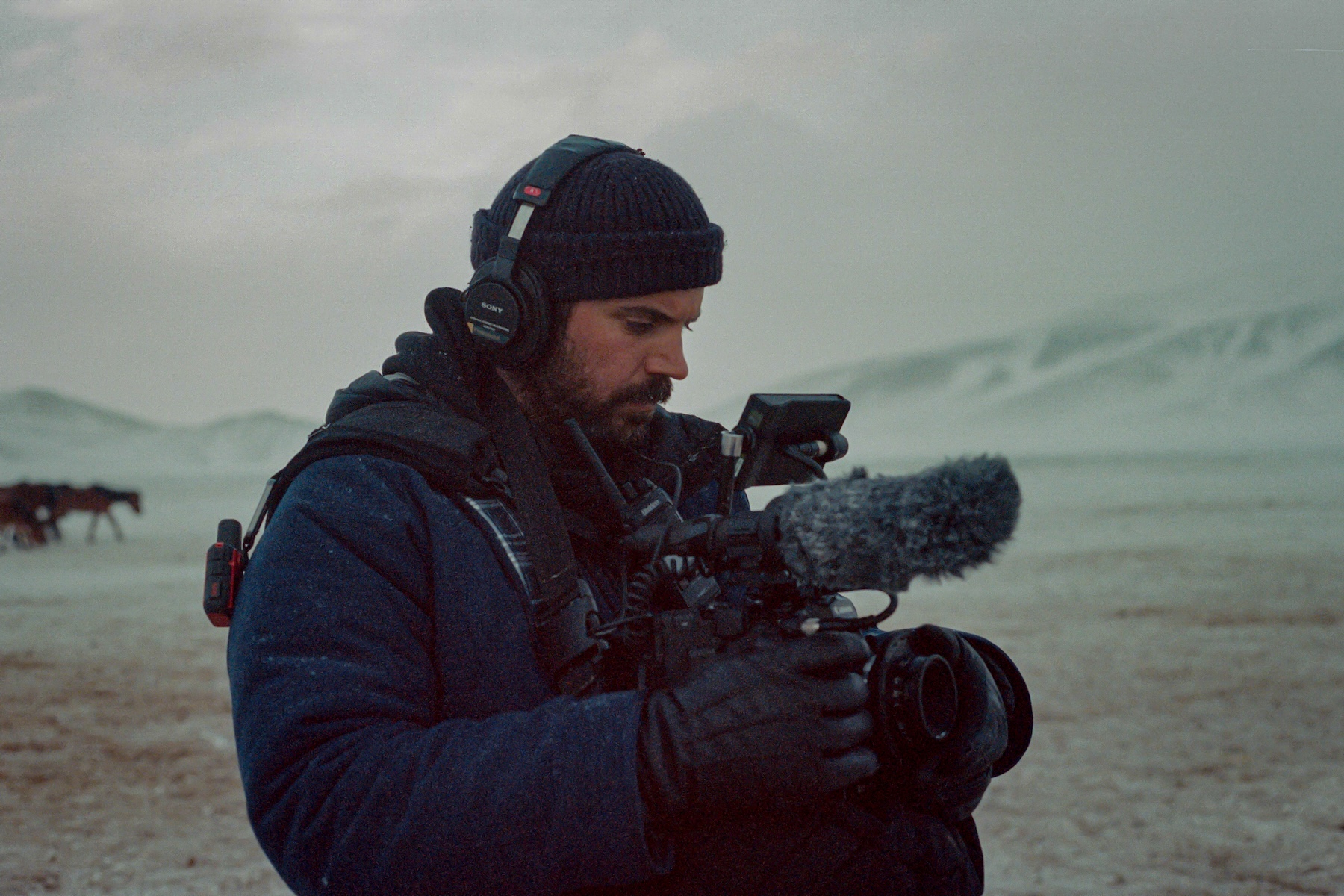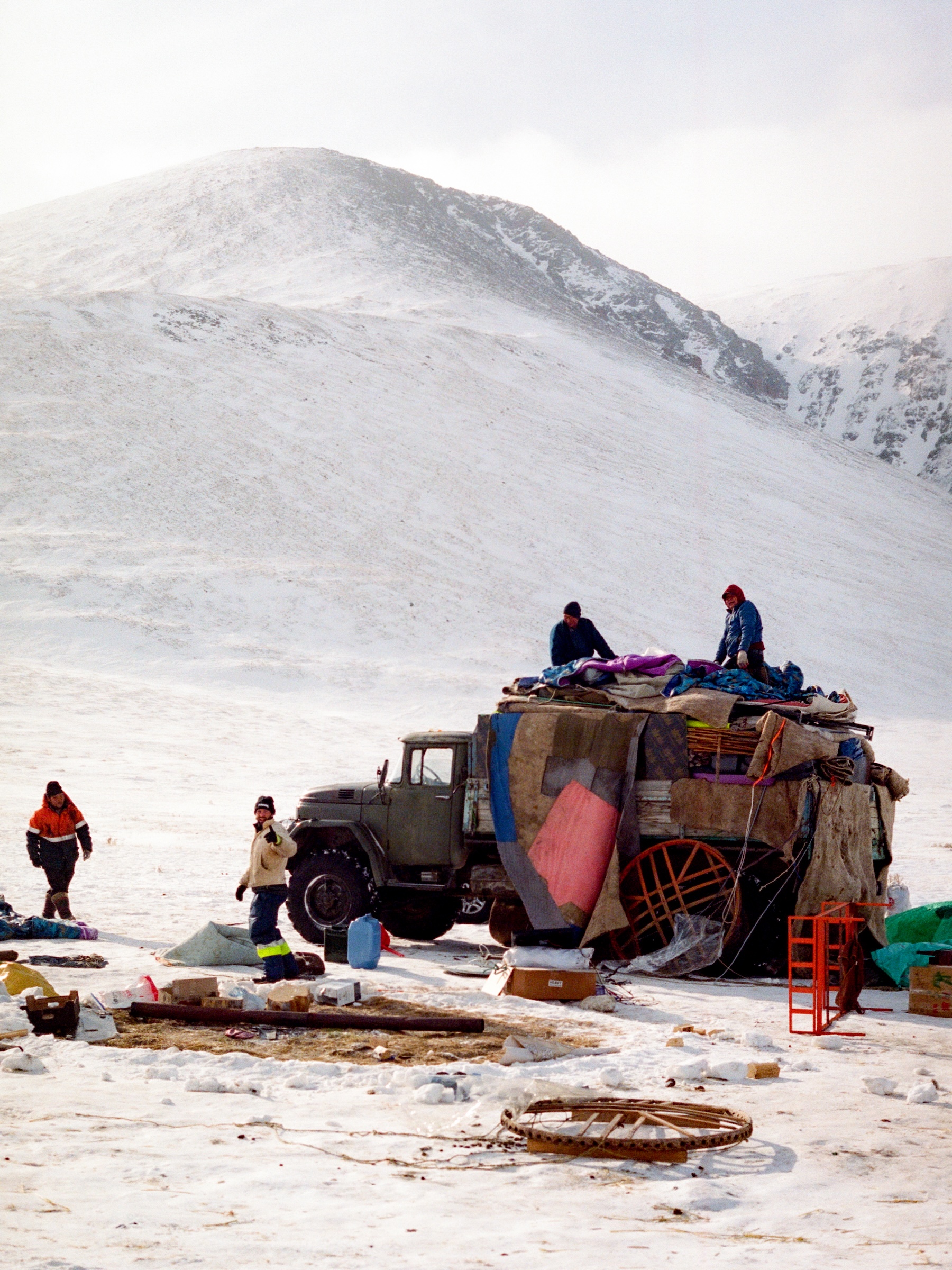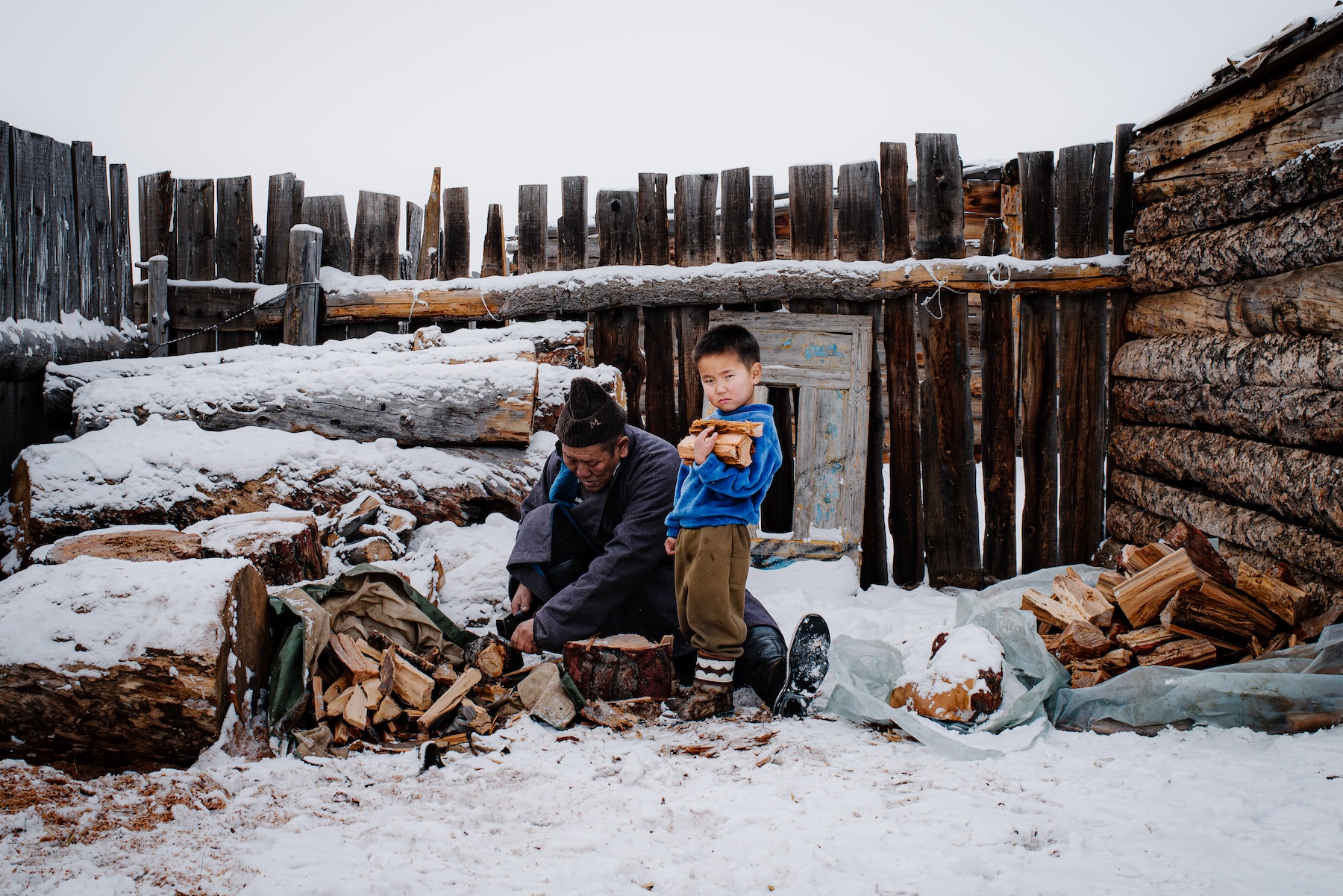‘It could be the last time’: baptism of ice for Adelaide filmmakers’ Mongolian epic
Adelaide filmmakers Ben Golotta and Morgan Wright made four 8000-kilometre trips to Mongolia to follow a nomadic winter herding for their new documentary, Iron Winter.




In December 2023, two young Mongolian men embarked on a 150-day winter quest to lead 2000 horses across the icy Tsaikhir Valley. The vast steppe of Mongolia has traditionally been open grazing for the herds of shaggy horses that are central to their community’s way of life, and for centuries wintertime has seen nomadic herdsmen set out to move their equine cargo to safer pastures beyond the approaching ice.
The two men, Batbold (18) and Tsagana (22), had long dreamed of making this rite of passage together, but climate change and economic pressures have increasingly placed the practice under threat as winters grow more bitter with each passing year, and more of their peers leave home to find regular work in the cities.
It was a challenging and poignant journey — not least for the crew of Adelaide documentary makers who had travelled thousands of kilometres to follow the pair every step of the way.
Filming Iron Winter became its own baptism of ice for Repeater Productions’ Ben Golotta and Morgan Wright, who made four 8000-kilometre trips to Mongolia, and juggled long-distance logistics, cultural and language barriers, and weather that was so bad on some days they could barely film.
“It was so cold the cameras lasted better than we did,” Golotta tells InReview. “It was -40C so it became near impossible some mornings and afternoons — but we had lots of warm clothes and handwarmers.”

The idea of documenting the endangered tradition came from Adelaide-based journalist and the film’s co-writer Ed Cavanough, who was the first foreign journalist to report on the practice with Mongolian artist and producer Enebish Sengemugaa.
You might like
“I was immediately captured by the story, the cinematic scale of it all, and the incredible untold story about the winter herd itself,” Golotta says.
Golotta, who studied sound engineering and music in London and Copenhagen before returning to Adelaide to join best friend Morgan Wright at Repeater Productions, expected to work in sound, but from necessity expanded into direction and production. After nine years spent making smaller projects — including campaigns for Adelaide Fashion Week and a marine sanctuary, short films and music videos — the Mongolian project was a chance to stretch themselves to a full-length documentary.
Golotta made his first trip to Mongolia with Cavanough to shoot a showreel to pitch to future investors. They brought in a friend from Melbourne, director Kasimir Burgess, along with cinematographer Benjamin Bryan and senior producer Chris Kamen who both worked with Burgess on the 2022 documentary Franklin, the highest grossing documentary of that year. Their involvement helped secure funding from Screen Australia, Vic Screen and the Melbourne International Film Festival Premier Fund.
The team took the short film to the International Documentary Conference in Melbourne where they won the Sheffield Docfest Prize, and from there the project snowballed. Despite the momentum, the group still faced immense challenges: before they could start rolling, they had to first establish acceptance and trust within a community who initially didn’t understand their interest.

“We had translators, but the only way we could get solid information to them was by being on-ground,” Golotta says. “We did a few trips and we met the elders from these different valleys and gained acceptance down to the level of local officials. They were just shocked that we were even interested in doing it, and then they really respected that we were so enamoured of their story.”
At first, Golotta and his collaborators were drawn to the story’s climate change narrative. As the trip progressed, however, it also revealed the power of ancient customs, the bond between nomads and their horses, and ever-growing economic pressures — the herders are obliged to repay farmers for any horses lost along the way.
Once the elders put forward Batbold and Tsagana to make the journey, the story also began to explore what it means for young men to grow up in the valley, where for generations winter herding helped mark the passage into manhood.
Subscribe for updates
Batbold is following in the steps of his father, Bayankhangai, who at 47 is on his tenth winter herding and wants his son to take over. But the ferocious storms, the frozen and dying animals and the constant threat of wolves take a grim toll.
“It was a big story point for us, and this positive view of masculinity became really interesting,” he says.
“We became best friends with these boys so quickly,” Golotta says. “We just bonded. They were so eager and keen straight away. There were lots of Google Translate silly jokes.”
Intimate shots at night of conversations inside the tents demanded hours of patience and close work with translators. Nothing could be forced, but the filming conditions were so cramped Golotta says getting the camera and microphone into place was like playing a game of Twister.
The weather overshadowed it all, and the team had to lock in funding before the cold moved in — although a warmer start to winter was causing new problems.

“We had no idea how the weather was unfolding. It wasn’t actually the coldest winter, but if the winter starts too early and it snows and thaws and then snows again, it creates a layer of ice over the pasture — and that is the main factor in the starvation of the animals,” Golotta says. “The herders have to find pasture further and further away, and it makes it more difficult.”
In a moving scene towards the end of the film, the role of the horses in the lives of the Mongolian people comes to the fore — and their love for them is evident. While the horses are kept as a measure of wealth, they are cared for and used for horsemanship, not their meat.
“Mongolians have a deep connection with their herds,” Golotta says. “It’s a spiritual thing for them. They don’t eat them unless they die a natural death, it’s not part of their culture.”
Amid broader debates about contemporary masculinity — and the role of film and television productions like Netflix’s Adolescence in broaching difficult conversations — the Iron Winter team hope the film might offer an alternative view of emerging masculinity for younger viewers, as the two young herders take pride in making the same difficult journey as their fathers and ancestors.
“It is a positive look at masculinity, and how that stands internationally in different cultures,” Golotta says. “It will definitely reach out to a lot of people because there are so many elements to the story.”
Iron Winter will screen as part of the Melbourne International Film Festival in August, with a wider release still to be announced
Want to see more stories from InDaily SA in your Google search results?
- Click here to set InDaily SA as a preferred source.
- Tick the box next to "InDaily SA". That's it.
Free to share
This article may be shared online or in print under a Creative Commons licence

